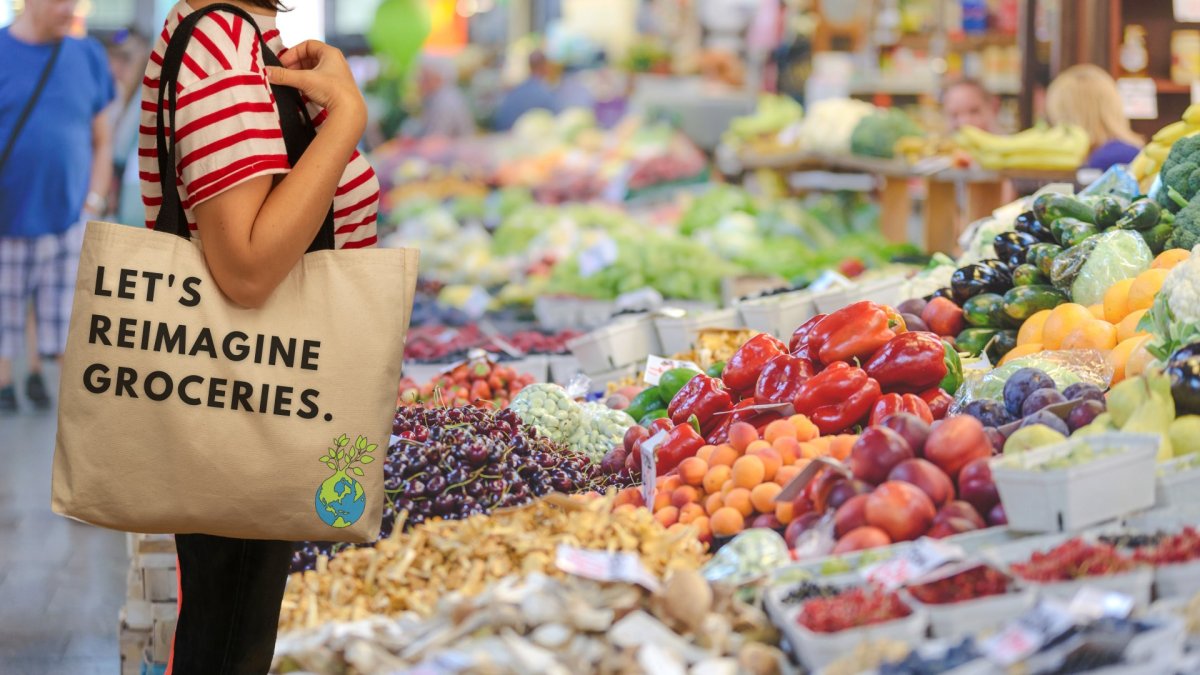Reimagine Co. is moving to a new, bigger location and is planning to open the city’s first zero-waste grocery store by the end of the year — with some help from Londoners.

The business, which had been operating a storefront out of 211 King Street in the old Novack’s building as well as a space in the Western Fair Market, is launching a crowd-funding campaign in hopes of raising $50,000 in 30 days.
For every dollar contributed, Reimagine says it will “issue a matching amount of store credit to be used once we open our new location” at 206 Piccadilly St., southwest of Richmond and Oxford streets.
“The decision to move into the new building was made right before the pandemic hit. And so it’s something we were committed to and it’s something that we’ve been able to do thanks to a wonderful team and great support from the community. And we are now asking the community to come together and help us with the final push,” Reimagine Co.’s Heenal Rejani told Global News.
“Next week, September 15, we are launching a crowdfunding campaign to raise $50,000 that’ll help us renovate the space, paint it, patch up the floors, and buy equipment and shelving and weighing equipment and display units that we need in order to open up this grocery store, which we hope to do in the next couple of months.”
The crowd-funding is being facilitated through a platform called Chuffed.
“It’s a platform that’s really designed for social enterprises, which is what Reimagine is,” said Rejani.
“Reimaginegroceries.ca … will take you to a page on our website that will tell you about what we’re planning to do. And then next week when the campaign goes live you’ll be able to go to the crowdfunding page.”
In addition to items the store already has on offer, like kitchen and bathroom products free from single-use plastic packaging, the new store will offer bulk foods like nuts, grains, beans, pasta, and candy; bulk liquids on tap like cooking oils, vinegars, kombucha; locally grown produce; package-free frozen foods; plant-based milks, cheese, and proteins; and prepared meals from some local restaurants.
Rejani also explained that Reimagine has been working with local authorities to address the added challenges posed by the ongoing pandemic.
- 2021 heat dome fuelled by climate change, intensified wildfire risk: study
- B.C. introduces legislation recognizing Haida Gwaii Indigenous title
- Whale experts confident B.C. orca calf will survive, find family if rescue plan succeeds
- Chemical plant shuts down after high benzene levels detected near Ontario First Nation
“How do you run a food business, let alone a package-free food business in this time? And that’s something we’re working with the city and the health unit and really thinking through, doing risk assessments and ‘how can we do this in the best way?'” he said.
“It’s really important to at this time, yes, we’ve got to come together and keep safe, but we’ve also got to look after our planet. The pandemic gives us an opportunity to re-imagine how we can be, we can re-imagine normal, we can choose to live in a better way.”
United Nations experts recently listed climate change as among the factors contributing to the rise in diseases that, like the novel coronavirus, are passed from animals to humans. In a report in July, the UN Environment Programme (UNEP) and International Livestock Research Institute (ILRI) jointly identified seven trends responsible for such diseases, known as zoonotic, calling on governments to take steps to stop future pandemics.
Specific to food, Canadians are among the biggest food-wasters on a per-person basis. A January 2019 report concluded that “58 per cent of Canadian food production is wasted,” while a Western University study in April 2019 found that the average household in London “disposes of $600 worth of food waste every year.”
Reimagine is hoping to open in October or early November.
The new location will also provide space for workshops, a tool library, and a café, Reimagine says.

— with files from Reuters’ Nita Bhalla.








Comments